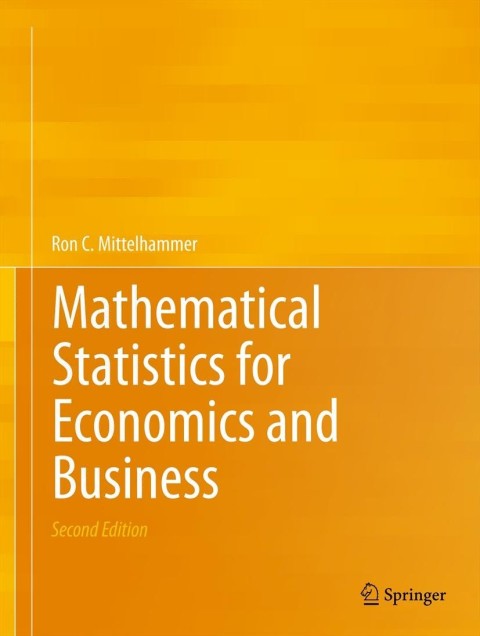Let the size (n) random sample (mathbf{Y}=left[Y_{1}, Y_{2}, ldots Y_{n}ight]^{prime}) be such that (mathbf{Y}=mathbf{x} beta+boldsymbol{varepsilon}), where (mathbf{x})
Question:
Let the size \(n\) random sample \(\mathbf{Y}=\left[Y_{1}, Y_{2}, \ldots Y_{n}ight]^{\prime}\) be such that \(\mathbf{Y}=\mathbf{x} \beta+\boldsymbol{\varepsilon}\), where \(\mathbf{x}\) is a \(n \times 1\) non-zero vector of "explanatory variable values", \(\beta\) is an unknown parameter value, and \(\boldsymbol{\varepsilon}\) is an \(n \times 1\) random vector for which \(\mathrm{E}(\boldsymbol{\varepsilon})=\mathbf{0}\) and \(\operatorname{cov}(\boldsymbol{\varepsilon})=\sigma^{2} \mathbf{I}\).
a. Is \(t(\mathbf{Y})=\sum_{i=1}^{n} x_{i} Y_{i} / \sum_{i=1}^{n} x_{i}^{2}\) the BLUE of \(\beta\) ? Explain.
b. Define the mean and the variance of the estimator in a).
c. Under what conditions will the estimator in
a) be a consistent estimator of \(\beta\) ?
d. Consider an alternative estimator \(t^{*}(\mathbf{Y})=\left(\mathbf{x}^{\prime} \mathbf{x}+kight)^{-1} \mathbf{x}^{\prime} \mathbf{Y}\) for \(\beta\). (this is an example of a so-called "ridge regression" estimator). Define the mean and variance of this estimator. Is this a linear estimator? Is it unbiased? Is it asymptotically unbiased?
e. Under what conditions will the estimator in
d) be a consistent estimator of \(\beta\) ?
f. If you wanted to use the estimator that has the smaller expected squared distance from \(\beta\), would you prefer one estimator over the other? Explain.
Step by Step Answer:

Mathematical Statistics For Economics And Business
ISBN: 9781461450221
2nd Edition
Authors: Ron C.Mittelhammer





